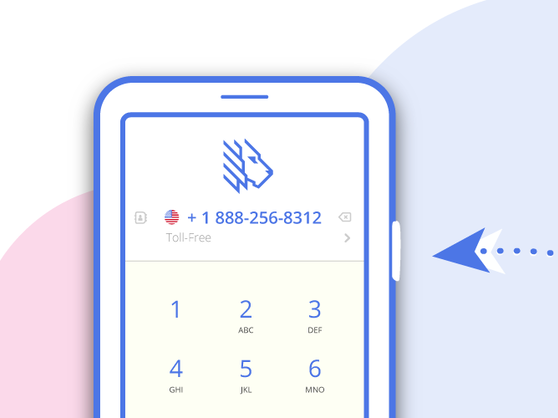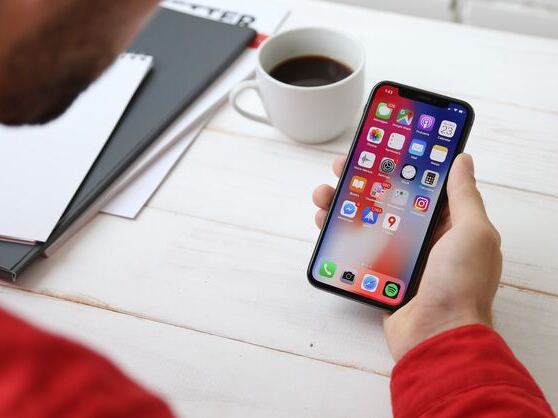A missed call can equal a missed business opportunity. But that’s not the whole story. When you don’t answer a call, you risk losing a prospect, wasting marketing dollars, escalating a complaint, and missing the chance to bond with and learn from customers.
Of course, you can’t answer every call, especially if you’re a sole proprietor and it’s after hours. Even so, it’s important to make the effort, as studies show 80 percent of callers hang up without leaving a voicemail.
Here are eight things that can happen when you don’t answer a call — and how call forwarding and other virtual phone system features can help increase your chances of answering calls.
- You lose a prospect. When someone calls your company today, it’s a big deal. Think about it: Most likely, you’ve posted a lot of information about what you offer online, whether it’s a website, Facebook page, Twitter stream, or all of the above. Potential customers tend to research a product or service online before they take the next step: placing a call. So if the caller goes to voicemail, you may lose a motivated buyer.
- You waste money. If you’re spending marketing money to get prospects to call you, and 15 percent of those calls go to voicemail, guess what? You’re potentially wasting thousands of dollars every year.
- You aggravate an already aggravated customer. Imagine a customer who’s experienced a problem with your product or service and calls for support, to get a refund, or complain. Now imagine that caller goes to voicemail. The upshot: You’re likely to further irritate an already unhappy — and now former — customer. Plus, the caller may complain about you on Yelp or other sites. On the other hand, answering that call gives you an opportunity to turn a dissatisfied customer into a fan.
- You can’t answer a prospect’s questions. Some callers want to ask questions, so they can judge if your offerings are right for them. When you don’t answer, you miss the chance to better inform your callers and potentially convert them into customers.
- You can’t learn from customers and prospects. When you don’t pick up the phone, you can’t find out more about the caller. But if you answer, you’ve suddenly got an ideal opportunity to find out how prospects discovered you, if they have considered your competitors, what they’re looking for, and who they are. All of this can help you improve your marketing, sales and advertising initiatives.
- You can’t bond with your caller. Personal interaction with callers can help you build a rapport with them. Aside from asking/answering questions, you can make “small talk” or bond over similar interests, whether it’s sports, travel, or something else. Personal touches like this turn a prospect into a customer and a customer into a fan.
- Your customer may feel unimportant. Sending customers or prospects to voicemail, or making them navigate complicated phone menus and trees, can make them feel like you don’t want to talk to them. But when you personally answer their calls right away, they feel important — a much more positive customer experience.
- You make impatient callers wait. Consumers today expect expediency. They want their emails answered within an hour or two, text messages even sooner, and phone calls right away. They don’t want to wait on hold, either. So the more time you can save callers, by answering right away, the more likely they’ll want to do business with you.
How call forwarding and a virtual phone system can help
- Call forwarding automatically directs inbound calls to any device, including a smartphone, landline or VoIP phone, based on rules you determine. With a virtual phone system’s Find Me/Follow Me feature, which is a form of call forwarding, you could opt to ring one phone first, then another, then another. Or all phones could ring simultaneously — which can dramatically decrease the chances of missing a call.
- You can give callers an easy option for receiving a call back. Instead of making callers leave a voicemail, your virtual phone system can give them the option to press “one” (or another number) to request a callback. If you call them back, say, within an hour, you’re less likely to alienate them. You might also consider offering a discount or other perk to make up for being unavailable when they called.
- You can analyze call logs to improve the odds of answering. A virtual phone system typically offers a detailed log of inbound and outbound calls and provides data such as average wait times and percentage of missed calls. With this information, you can make improvements, such as adding more call center agents during specific hours to reduce average wait times and decrease the missed call percentage. You’ll also have a baseline, to which you can compare later results to see if you’ve hit your goals.
MightyCall’s virtual phone system offers these and other features to help you answer incoming calls right away and more effectively manage missed calls.




























